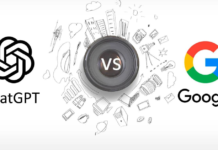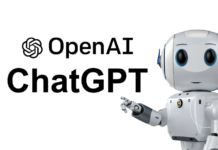
The world is changing at an unprecedented pace, and education is no exception. The rise of technology has led to new and innovative ways to learn, and one of the most exciting developments is the emergence of ChatGPT. This revolutionary platform has the potential to transform the way we think about education, by providing students with personalized learning experiences that go beyond the traditional classroom.
In recent years, there has been a growing interest in using chatbots and AI tools in education to enhance student learning and improve teaching methods. Chatbots like ChatGPT can play an important role in this transformation by providing personalized learning experiences, automating administrative tasks, and enabling new forms of assessment.
Importance of Revolutionizing Education
The importance of revolutionizing education cannot be overstated. Education is a key driver of individual and societal progress, and it is crucial that we continually strive to improve teaching methods, access to resources, and student outcomes.
By leveraging the power of AI, we have the potential to transform the educational system and improve student learning in ways that were previously not possible. AI tools can help us to personalize learning experiences, automate administrative tasks, and provide real-time feedback to students and educators.
AI’s History and Impact on Education
AI has a rich history in education, dating back to the 1960s when researchers began exploring the use of computers in education. Over the years, AI has been used to develop intelligent tutoring systems, adaptive learning platforms, and natural language processing tools.
In recent years, advances in machine learning and natural language processing have paved the way for more sophisticated AI tools that can be used in education. These tools can help educators to identify student strengths and weaknesses, adapt instruction to individual needs, and provide real-time feedback to students. As a result, AI is reforming education and transforming the way we teach and learn.
The Impact of ChatGPT on Education
One of the most promising applications of ChatGPT in education is its potential to enhance student learning. ChatGPT has the potential to transform the way we teach and learn. Some of the ways in which ChatGPT can enhance student learning include:
Personalized Learning Experiences
One of the most promising applications of ChatGPT in education is its ability to provide personalized learning experiences. By analyzing vast amounts of data on student performance and behavior, ChatGPT can identify patterns and make predictions about individual learning needs. This allows educators to create personalized pathways for each student, tailored to their strengths and weaknesses.
Adaptive Learning Systems
Another way that ChatGPT is transforming education is through its ability to create adaptive learning systems. These systems adjust the difficulty and pace of instruction based on each student’s progress, ensuring that they are appropriately challenged and engaged. This also helps to identify gaps in knowledge that need to be addressed.
Automating Administrative Tasks
ChatGPT can also help in streamlining administrative tasks that can be time-consuming and labor-intensive for educators. By automating tasks such as grading and assessment, scheduling and communication, teachers can free up time to focus on more meaningful tasks such as lesson planning and student support. This reduces the workload for educators and provides real-time feedback to students, which can also help to standardize grading practices and reduce the potential for bias.
Virtual and Augmented Reality
ChatGPT can power virtual and augmented reality tools, creating immersive learning experiences for students. Through these tools, students can interact with real-world concepts in a safe and controlled environment, with ChatGPT providing additional information and guidance.
Intelligent Course Design
ChatGPT can assist in creating personalized learning experiences for students by analyzing student data and providing personalized recommendations for course content and assessment methods. This can improve student engagement and performance by tailoring the learning experience to individual needs.
How ChatGPT Helps Educators
ChatGPT is not only helping students learn but also helping educators to improve their teaching methods. Here are some ways ChatGPT is helping educators:
Real-time Monitoring of Student’s Progress
ChatGPT allows educators to monitor student progress in real-time. By analyzing data and tracking performance, educators can identify areas of strength and weakness, allowing for personalized support and feedback to be provided to each student. ChatGPT-powered tools like learning management systems (LMS) and Student Information Systems (SIS) enable teachers to access student data, including attendance, assignments, grades, and behavior records, all in one place. This helps educators to make informed decisions about their teaching strategies and to identify students who may require additional support.
Personalized Professional Development
ChatGPT can help educators to personalize their professional development, tailoring their learning to meet their individual needs and interests. For example, ChatGPT can provide personalized recommendations for professional development based on an educator’s interests, experience, and skill level. This allows educators to stay up-to-date with the latest teaching techniques, tools, and trends. Ultimately improving the quality of their teaching.
Language Translation of Educational Resources
ChatGPT-powered language translation technology can help educators to overcome language barriers and improve accessibility to educational resources for students with different language backgrounds. ChatGPT equipped with language translation capabilities can provide real-time translations of classroom discussions, course materials, and assignments. This allows students with limited English proficiency to participate fully in classroom activities and to access educational resources in their preferred language.
Multimodal Learning
ChatGPT-powered tools can support multimodal learning, which involves the use of multiple modes of representation, such as text, images, and videos, to convey information. The educators can use such tools to make the lectures more engaging. For example, ChatGPT can asisst teachers and professors in craeting interactive, multimedia-rich learning lectures and presentations that are tailored to the learning styles and preferences of the students. This can help in increasing engagement and motivation among students, ultimately leading to improved learning outcomes.
The Importance of Futurism in Education
The job market and world are evolving rapidly, and it is crucial to prepare students for the future. ChatGPT is revolutionizing education by anticipating future trends and equipping students with the skills they need to succeed in the real world.
Preparing Students for the Future
ChatGPT helps students develop collaboration, communication, problem-solving, critical thinking, and adaptability skills through personalized learning experiences. As mentioned before, AI tools powered with ChatGPT can track student progress in real-time, identify areas of strength and weakness, and provide personalized feedback and support to each student. This helps educators make informed decisions about their teaching strategies and identifies students who may require additional support.
Adapting to Technological Advancements
ChatGPT can be used to adapt the curriculum and promote lifelong learning by introducing new technologies and teaching students how to use them. It can also provide students with personalized recommendations for professional development based on their interests, experience, and skill level. This helps educators stay up-to-date with the latest teaching techniques, tools, and trends. Ultimately, it makes the inetgration and transition to new technologies more faster which usually takes like several years.
Encouraging Innovation
ChatGPT helps foster creativity and entrepreneurship in students by providing them with the tools they need to think creatively and come up with innovative solutions to real-world problems. This can lead to increased engagement and motivation among students. Additionally, ChatGPT promotes the ethical and responsible use of AI to ensure that it is used for the greater good.
Ethical and Societal Implications of ChatGPT in Education
As with any AI tool, there are ethical and societal implications that need to be considered when integrating ChatGPT in education. Here are some of the concerns:
Data Privacy and Security
The use of ChatGPT in education raises concerns about data privacy and security. It is important to ensure that student data is collected and stored securely, and that students and parents are informed about what data is being collected and how it will be used.
Bias and Discrimination
As with any AI tool, there is a risk of bias and discrimination. It is important to ensure that ChatGPT is trained on diverse datasets to prevent perpetuating biases in education.
Balancing ChatGPT and Human Expertise
While ChatGPT can provide personalized instruction and feedback, it cannot replace the expertise and guidance of human educators. It is important to find a balance between the use of ChatGPT and human expertise to ensure the best learning outcomes for students.
Conclusion
In conclusion, ChatGPT can have a significant impact on education by revolutionizing the way students learn and interact with information. Through its natural language understanding capabilities, ChatGPT has the ability to provide personalized assistance and support to students, making learning more accessible and efficient. Moreover, ChatGPT’s integration in education can result in the automation of administrative tasks. Providing time for educators to focus on more impactful areas of teaching.
The future of ChatGPT in education looks promising, with potential developments in chatbots and virtual assistants, emotion and affective computing, and intelligent course design. However, it is important to consider the ethical and societal implications of ChatGPT in education, such as bias and privacy concerns, to ensure that it is used in a responsible and transparent manner. As ChatGPT continues to advance, it has the potential to transform education and provide students with new opportunities for success.









